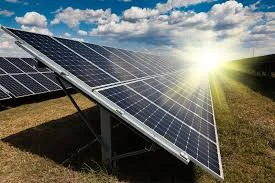Determining the Size of a 1kW Solar Panel System for Optimal Energy Production
Understanding the Size of a 1 kW Solar Panel System
As global interest in renewable energy sources continues to grow, many homeowners and businesses are exploring the potential of solar power. One common question that arises is how much space do I need for a 1 kW solar panel system? To answer this question, we need to consider several factors, including the size and efficiency of solar panels, the overall system design, and the energy requirements of the property.
What is a 1 kW Solar Panel System?
A 1 kW solar panel system refers to a solar energy setup that can generate approximately 1 kilowatt of power under optimal conditions. This is a relatively small system, typically suitable for small households or applications that have lower electricity requirements. The actual energy output of a solar panel system depends on various factors, including location, weather conditions, and the orientation and tilt of the panels.
Size of Solar Panels
The size of solar panels can vary widely depending on the manufacturer and the technology used. However, most traditional solar panels have a capacity ranging from 250 to 400 watts per panel. A standard solar panel that produces around 300 watts will measure approximately 1.6 meters by 1 meter (65 inches by 39 inches). Therefore, to create a 1 kW solar panel system, you would typically need about 3 to 4 panels, depending on their individual output ratings.
If we consider an average solar panel output of 300 watts, you would need about four panels to achieve the 1 kW total output. When arranged together, these panels would take up a footprint of roughly 6.4 square meters (or about 69 square feet) when accounting for the space needed for installation and maintenance.
Efficiency Considerations
The efficiency of solar panels is another critical factor. Higher efficiency panels can generate more power from the same amount of sunlight and, as a result, require less space. While traditional solar panels have efficiencies around 15-20%, newer technologies such as monocrystalline panels can achieve efficiencies surpassing 20%. This means that for the same power output, more efficient panels can significantly reduce the amount of space required.
1kw solar panel size

For example, if you opt for higher efficiency monocrystalline panels that produce around 350 watts each, you might only need three panels to reach the 1 kW threshold. This reduces the footprint needed for your solar installation.
Other Installation Considerations
In addition to the physical size of the solar panels, there are other design considerations that can affect the total space requirement for a solar panel system. These include the following
1. Mounting System The kind of mounting system you choose (roof-mounted, ground-mounted, or pole-mounted) can influence how much space is needed. Roof-mounted systems typically can utilize existing space without taking up additional land, while ground-mounted systems may require a larger area.
2. Shading Ensure the installation area remains free from obstructions such as trees, buildings, or other structures that can cast shadows on the panels, as shading can significantly reduce their efficiency.
3. Orientation and Tilt The angle at which solar panels are installed can impact their performance. Ideally, solar panels should be oriented towards the sun, usually facing south in the northern hemisphere, to maximize exposure.
Conclusion
In summary, a 1 kW solar panel system typically requires around 6-10 square meters of space, depending on the type and efficiency of the panels chosen. As solar technology continues to evolve and improve, homeowners and businesses can look forward to more efficient and more compact solar solutions in the future. Understanding your energy needs, along with the specifications of the solar panels available, will enable you to design a system that not only fits within your space but also meets your energy requirements effectively. Investing in solar energy is not just about saving on utility bills but also about contributing to a more sustainable future.
-
Unlocking Energy Freedom with the Off Grid Solar InverterNewsJun.06,2025
-
Unlock More Solar Power with a High-Efficiency Bifacial Solar PanelNewsJun.06,2025
-
Power Your Future with High-Efficiency Monocrystalline Solar PanelsNewsJun.06,2025
-
Next-Gen Solar Power Starts with Micro Solar InvertersNewsJun.06,2025
-
Harnessing Peak Efficiency with the On Grid Solar InverterNewsJun.06,2025
-
Discover Unmatched Efficiency with the Latest String Solar InverterNewsJun.06,2025







